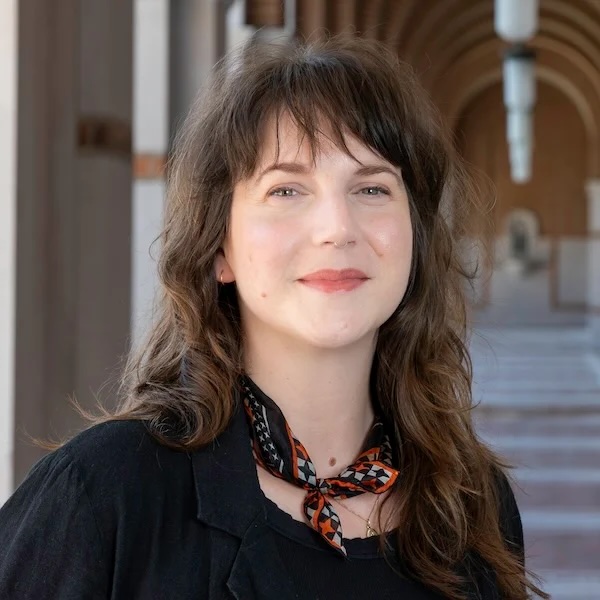
By Chloe Landen
On February 21st, faculty and students from the UT Austin Religious Studies Department’s Religions of the Americas track were joined by Dr. Judith E. Brunton, Assistant Professor at Rice University. A native Canadian with a longstanding interest in the intersection of religion with narratives of environmental belonging, Dr. Brunton is in the final stages of completing her forthcoming work, Boom or Bust. This study employs a combined ethnographic and archival approach to explore how oil companies, government agencies, community organizations, and individuals in Alberta, Canada—the largest oil-producing province in the nation—have used oil to prescribe moral values that promise access to “the Good Life.” Her research poses the following questions: Why are people in Alberta attracted to values related to oil and extraction, given that the ‘Boom and Bust’ cycle is often painful for those who live within it? How does the rest of Canada perceive Alberta’s ongoing oil extraction amid worsening climate outcomes and predictions? For Dr. Brunton, it was not enough to grapple with these questions solely through an economic or political lens. Rather, the study of religion can illuminate more fulfilling answers. By engaging with scholarship on civil religion, the intersection of religion and business, the power of the mind and spirituality, and material religion, Dr. Brunton’s Boom or Bust reveals Alberta’s culture of oil extraction as a religious framework that generates meaning, instills values, and offers a dynamic and personal source of power.
A draft of Boom or Bust’s final chapter, “Stampede,” was kindly pre-circulated to provide the framework for the colloquium’s broader discussion. “Stampede” represents the ethnographic portion of Boom or Bust and follows Dr. Brunton through her experiences at the 2018 and 2019 Calgary Stampede. In this annual event, thousands of Canadian citizens, oil representatives, and members of indigenous tribes gather in Calgary, often dressed in stereotypical western attire, engage in traditional western activities and celebrate the oil industry’s triumphs. For Dr. Brunton, the Calgary Stampede epitomizes the peak of the relationship between Western values and those related to oil. Western values, she argues, insist upon oil extraction. In fact, the two cultural forces are so intertwined that campaigning against oil extraction is perceived as a direct threat to Western values. As a cultural event that connects citizens, corporations, and indigenous history and culture, the Calgary Stampede illustrates how Western values operate as a religious framework that fosters a sense of belonging while allowing and even demanding oil extraction.
The chapter was meaningfully engaged by Religious Studies faculty Dr. Chad Seales and Religion in the Americas PhD students Drake Konow, Gabrielle Heenan, Peyton White, and Chloe Landen, all of whom asked generative questions and expressed enthusiasm for Boom or Bust’s imminent publication. UT’s Religious Studies department is thankful for Dr. Brunton’s willingness to join us and share her work.
Dr. Judith Brunton is an Assistant Professor and Boniuk Institute Faculty Fellow at Rice University. Her forthcoming book, Boom or Bust, examines the intersection of religion, oil extraction, Western values, and meaning-making in Alberta, Canada. Broadly, Dr. Brunton has interests in secularity and enchantment, cosmologies of land, capitalism, and labor within the North American West.
Chloe Landen is a PhD student in the Religion in the Americas concentration within UT’s Department of Religious Studies. Her work focuses on U.S. Protestantism in the nineteenth and twentieth centuries with particular interests in the social gospel movement and narratives of belonging. She is currently engaged in a research project examining the Association of Southern Women for the Prevention of Lynching (ASWPL) and the connections between anti-lynching activism, religion, and the privatization of execution.
